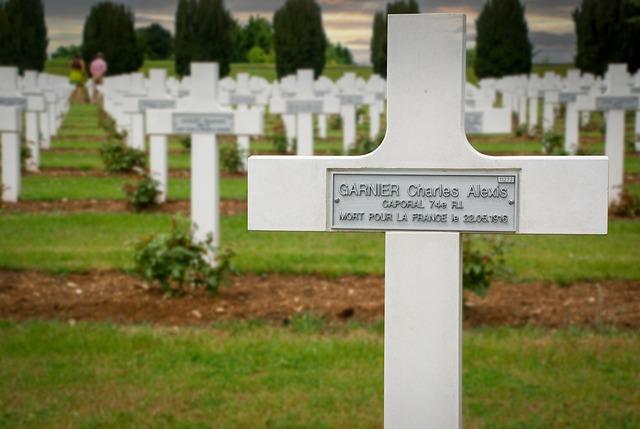In a important move to bolster international justice,Switzerland has reaffirmed its commitment to supporting the Trust fund for Victims (TFV) associated with the International Criminal Court (ICC). This strategic contribution aims to enhance the victim-centered mandate of the ICC, which is pivotal in addressing the needs and rights of those affected by war crimes and crimes against humanity. As the global community grapples with the lasting impacts of such atrocities, Switzerland’s financial support will facilitate crucial assistance programs that provide rehabilitation and reparations for victims.This initiative not onyl underscores Switzerland’s longstanding advocacy for human rights but also aligns with broader efforts to ensure that the voices of victims are heard and upheld in the pursuit of justice. With the ICC increasingly recognized for its role in bringing perpetrators to accountability, Switzerland’s contribution signals a renewed focus on the integral role that victims play in the justice process, setting a precedent for other nations to follow.
Switzerlands Commitment to Victim Support at the International Criminal Court

Switzerland has long been a staunch advocate for human rights and justice, and its contributions to the Trust Fund for Victims at the International Criminal Court (ICC) underscore this commitment. By providing financial support, Switzerland aims to enhance the victim-centered mandate of the ICC, ensuring that those affected by the gravest crimes receive the necessary assistance and reparations. This initiative is crucial, as it helps victims rebuild their lives, regain their dignity, and navigate the complexities of the international justice system. The Swiss goverment recognizes the importance of empowering victims, as their voices are essential for comprehensive accountability and meaningful reconciliation.
Swiss contributions to the Trust Fund are strategically aimed at several key objectives:
- Rehabilitation services: Support for mental health, medical treatment, and vocational training.
- Legal assistance: Ensuring that victims have access to legal advice and representation.
- Community programs: Initiatives aimed at reintegrating victims into their communities and fostering social cohesion.
In aligning its efforts with the ICC’s mission, Switzerland also emphasizes the need for collaboration with other nations and organizations. By working together, member states can create a robust support network that prioritizes the well-being of victims and promotes restorative justice on a global scale.
Understanding the Role of the Trust Fund for Victims

The Trust Fund for Victims (TFV) plays a pivotal role in the overarching mission of the International Criminal Court (ICC) by ensuring that the voices and needs of victims are front and center. Established as part of the Rome Statute, the TFV operates under a dual mandate, providing assistance and reparative programs to those who have suffered as a result of crimes under the jurisdiction of the ICC. The fund not only focuses on financial reparations but also emphasizes holistic support, helping victims rebuild their lives through various initiatives aimed at psychological, medical, and social rehabilitation.
In essence, the TFV’s impact can be viewed through several key areas:
- Access to Justice: Facilitates access for victims to the ICC processes and offers support systems for their participation.
- Reparative Projects: Funds community-based programs that assist victims in healing from trauma and rebuilding their lives.
- Awareness and Advocacy: Promotes education about victims’ rights and raises consciousness around the consequences of international crimes.
| Key focus Areas | Beneficiaries |
|---|---|
| Financial Support | Victims of war crimes and crimes against humanity |
| Mental Health Services | survivors of sexual violence |
| Community Programs | Displaced families and affected communities |
Strengthening the Victim-Centred Mandate: What It Means for the ICC

The International Criminal Court (ICC) has always prioritized the rights and needs of victims amid its legal proceedings. As part of its ongoing efforts to enhance its victim-centred framework, Switzerland’s recent contributions to the Trust Fund for Victims (TFV) signify a pivotal shift towards a more inclusive approach. By focusing on the recovery and rehabilitation of victims of crime, the TFV aims to ensure that those affected by the most heinous acts of violence can access essential services, including medical care, psychological support, and educational opportunities. This initiative is not merely about providing aid; it’s about restoring dignity and empowering victims to reclaim their lives.
Strengthening the victim-centric mandate also means increasing collaboration among various stakeholders, including international organizations, non-governmental organizations, and local communities.Such partnerships can enhance the reach and effectiveness of the support systems in place. Key components of this approach include:
- Community Engagement: Involving local communities in developing and implementing recovery programs to ensure that they meet real needs.
- comprehensive Support: Offering a holistic range of services tailored to individual circumstances, including psychological, legal, and financial assistance.
- Awareness and Advocacy: Promoting understanding and recognition of victims’ rights within international forums and local contexts to foster supportive environments.
| Focus Area | Goals |
|---|---|
| Health Services | Provide accessible medical care for physical and mental injuries. |
| Legal Assistance | Ensure victims understand their rights and seek justice. |
| Education | Facilitate educational opportunities to rebuild potential futures. |
By addressing these critical areas, the ICC, together with its partners like Switzerland, demonstrates that justice is not just about punishment but also about healing and empowerment. The emphasis on victim support helps create a more robust legal framework that prioritizes the human element at its core, fostering resilience and rebuilding trust in the justice system.
Challenges Facing the Trust Fund and Strategies for Improvement

The Trust Fund for Victims faces a multitude of challenges that impede its ability to fulfill its mandate effectively.One prominent issue is limited financial resources, which hinders the scope and scale of its initiatives. As victims around the world await justice and reparations, the need for sustainable funding is more critical than ever. Additionally, insufficient awareness about the fund’s work may contribute to a lack of engagement from potential donors and stakeholders, thus perpetuating the cycle of underfunding. Furthermore, navigating the complexities of post-conflict environments can pose significant operational hurdles, impacting the timely delivery of services and support to victims.
To address these challenges, several strategies for improvement can be implemented.Enhancing outreach and awareness campaigns could substantially raise the fund’s profile, encouraging more contributions from state parties and private donors. Collaborating with local organizations may also facilitate community engagement, ensuring that the voices of victims are prioritized in decision-making processes. Moreover, developing a robust financial strategy that includes diversified funding sources could mitigate the risks associated with reliance on a few major contributors. By establishing clear reporting mechanisms, the fund can also bolster trust and confidence among existing and potential donors, ultimately fostering a more resilient support system for victims worldwide.
The Importance of International Collaboration in Victim Assistance

In today’s interconnected world, the urgency for international collaboration in victim assistance has never been more pronounced. Countries like Switzerland recognize the necessity of pooling resources and expertise to enhance the effectiveness of support systems for victims of international crimes. By contributing to the Trust Fund for Victims (TFV) of the International Criminal Court (ICC),nations are not only fulfilling their legal and moral obligations but also fostering a unified response to the challenges faced by victims. This collaborative effort ensures that victims receive comprehensive assistance, addressing their psychological, social, and economic needs through a coordinated framework.
Moreover, such collaboration paves the way for innovative solutions and practices that can be adapted across borders. Key benefits of international cooperation include:
- Resource Sharing: Enhancing the capacity and reach of victim assistance programs through shared funding and expertise.
- Standardization: Developing common approaches and best practices that improve the quality of services provided.
- Awareness Raising: Increasing visibility for victims’ rights and needs on a global scale.
in this context, partnerships between governments, NGOs, and international organizations are crucial for creating a sustainable support network. Collaborative efforts can led to the establishment of initiatives that transcend geographical boundaries, ultimately ensuring justice and reparation for victims worldwide.
Recommendations for Enhancing the Effectiveness of Switzerland’s Contributions

To maximize the impact of Switzerland’s contributions to the Trust Fund for Victims (TFV), strategic enhancements can be vital in aligning support with the broader victim-centered mandate of the ICC. Engagement with local communities is critical; Switzerland should prioritize initiatives that promote awareness of the Trust Fund’s resources among victims and their families. Additionally, increasing collaboration with NGOs specializing in victim assistance can definitely help ensure that contributions are effectively targeted, offering survivors of atrocities tangible support and resources. This fosters a holistic approach, connecting legal reparations with psychological and social support services.
Incorporating transparency and accountability measures will also bolster the effectiveness of Switzerland’s contributions. Implementing regular reporting and assessments on the utilization of funds will facilitate a clearer understanding of the impact on victim advocacy and support. Furthermore, establishing a multi-stakeholder advisory board that includes representatives from victim communities, civil society, and international experts could provide valuable insights and guidance. This collaborative model can enhance credibility and encourage sustained investment from other nations, ultimately amplifying the collective efforts to promote justice and healing for victims of the most serious crimes.
to sum up
Switzerland’s significant contribution to the Trust Fund for Victims is a pivotal step in enhancing the victim-centered approach of the International Criminal Court. This financial support underscores Switzerland’s commitment to upholding international justice and ensuring that those affected by atrocities receive the assistance and reparations they deserve. By empowering victims and prioritizing their needs, the ICC can work more effectively towards reconciliation and healing in post-conflict societies. As the global community continues to grapple with the aftermath of war crimes and human rights violations, switzerland’s proactive stance serves as a reminder of the essential role that international cooperation plays in fostering accountability and supporting victims on their path to justice. Moving forward, it will be crucial for other nations to follow suit, recognizing that meaningful support for victims is essential to the integrity and effectiveness of international criminal justice.











Unexpected Allies: The G.O.P.’s Unlikely Embrace of Putin’s Russia